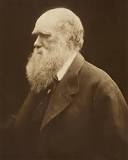Naturally
Well-known Member
- Location
- Corner of Walk 'n Don't Walk
There are those who see science as definite proof of one thing or another and accept science as the ultimate answer.
Here's some reasons why maybe you shouldn't and perhaps with a little reading, you may better understand science ... even if science doesn't fully understand you ...
Scientific Proof Is A Myth
Where’s the proof in science? There is none
Common Misconceptions About Science I: “Scientific Proof”
If You Say ‘Science Is Right,’ You’re Wrong
Forget what you’ve read, science can’t prove a thing
Craig’s List: What Science Fails to Explain
Here's some reasons why maybe you shouldn't and perhaps with a little reading, you may better understand science ... even if science doesn't fully understand you ...
Scientific Proof Is A Myth
Where’s the proof in science? There is none
Common Misconceptions About Science I: “Scientific Proof”
If You Say ‘Science Is Right,’ You’re Wrong
Forget what you’ve read, science can’t prove a thing
Craig’s List: What Science Fails to Explain


